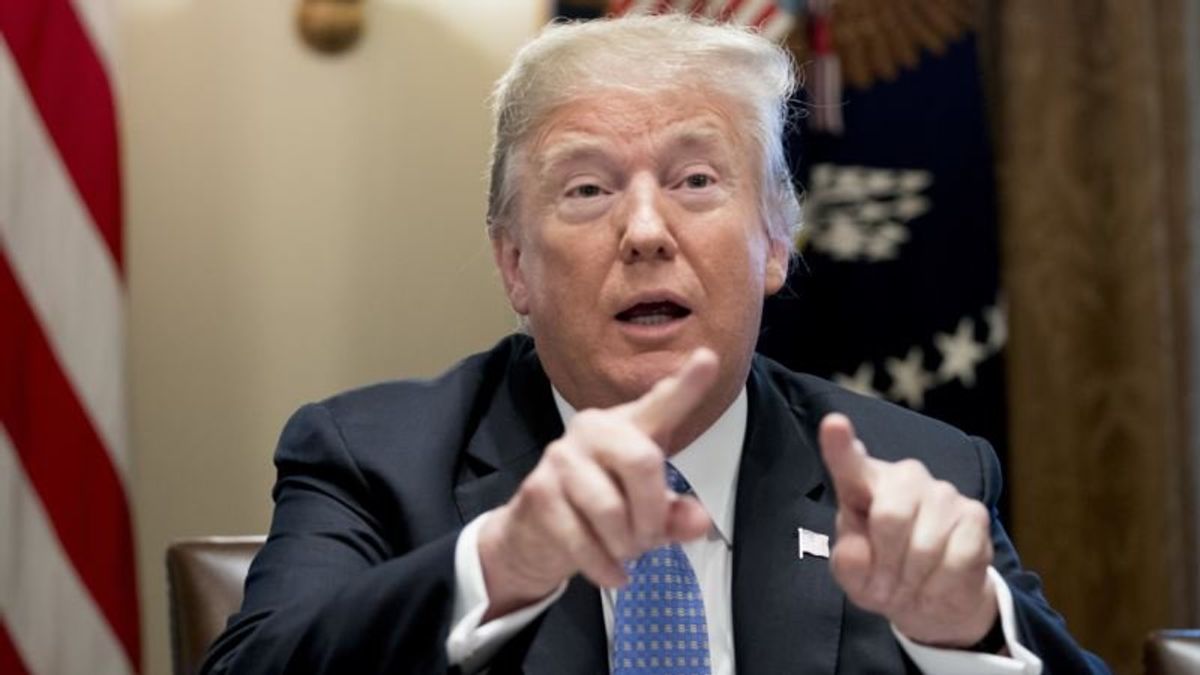
AP Fact Check: Trump’s Grocery ID Statement Unfounded
AP Fact Check: Trump’s Grocery ID Statement Unfounded

WASHINGTON —
President Donald Trump is justifying his call for voter ID cards by saying photo identification is a universal requirement in the marketplace. As anyone who frequents a grocery store knows, it’s not.
A look at his comments on the subject Tuesday and his press secretary’s attempt to explain them Wednesday:
TRUMP: “We believe that only American citizens should vote in American elections, which is why the time has come for voter ID like everything else. If you go out and you want to buy groceries, you need a picture on a card, you need ID. You go out, you want to buy anything, you need ID, you need your picture.” — remarks Tuesday at Florida State Fairgrounds in Tampa.
THE FACTS: No photo is required to purchase items at retail stores with cash or to make routine purchases with credit or debit cards.
Identifications are required to purchase limited items such as alcohol, cigarettes or cold medicine and in rapidly declining situations in which a customer opts to pay with a personal check.
According to the National Grocers Association’s most recent data, the use of checks as a percentage of total transactions dropped from 33 percent in 2000 to 6 percent in 2015, because in part to the popularity of debit cards, which use PIN codes. The group’s members are independent food retailers, family-owned or privately held, both large and small.

WHITE HOUSE PRESS SECRETARY SARAH SANDERS: “He’s not saying every time he went in; he said when you go to the grocery store.” — press briefing Wednesday.
THE FACTS: Actually, Trump did claim, erroneously, that photo IDs are required whenever “you want to buy anything,” not only in limited cases.
Asked when Trump last bought groceries, Sanders responded: “I’m not sure. I’m not sure why that matters, either.”
SANDERS: “The president wants to see the integrity of our election systems upheld, and that’s the purpose of his comments. He wants to make sure that anybody that’s voting is somebody that should be voting.”
THE FACTS: This concern, often voiced by Trump as well, stems from an unsupported theory that voter fraud has shaped election outcomes.
The actual number of fraud cases is very small, and the type that voter IDs are designed to prevent — voter impersonation at the ballot box — is virtually nonexistent.
In court cases that have invalidated some ID laws as having discriminatory effects, election officials could barely cite a case in which a person was charged with in-person voting fraud.
Democrats have opposed voter-ID laws as unnecessarily restricting access for nonwhites and young people, who tend to vote Democratic. Republicans accuse Democrats of wanting noncitizens to be able to vote in U.S. elections.
Neither Sanders nor Trump has offered evidence of consequential fraud. Sanders said Wednesday that “even if there are 10 people that are voting illegally, it shouldn’t happen.”
 State Lawmakers Surviving Allegations in #MeToo AgeNext PostPompeo in Malaysia for Talks on Free Trade, North Korea
State Lawmakers Surviving Allegations in #MeToo AgeNext PostPompeo in Malaysia for Talks on Free Trade, North Korea





